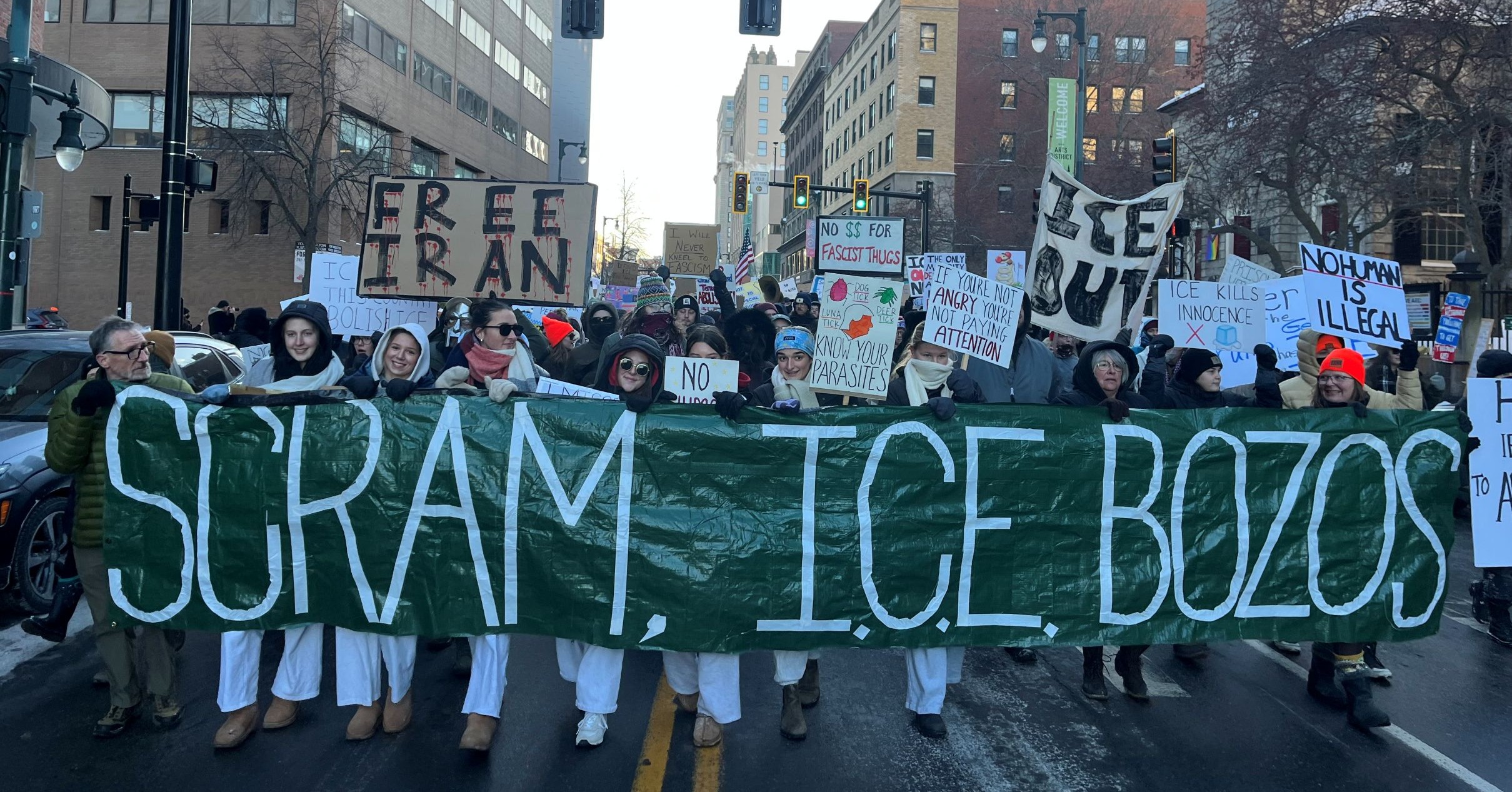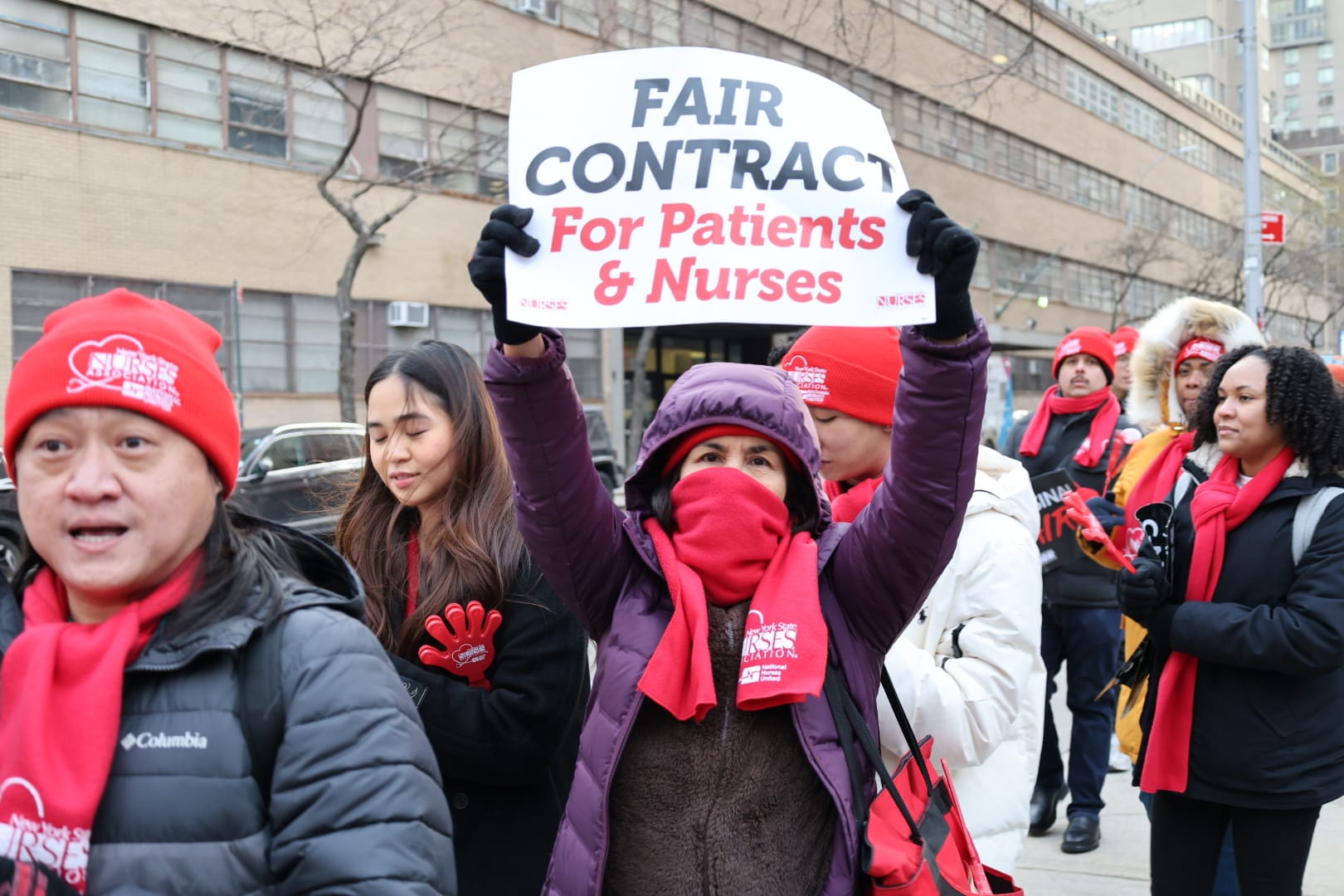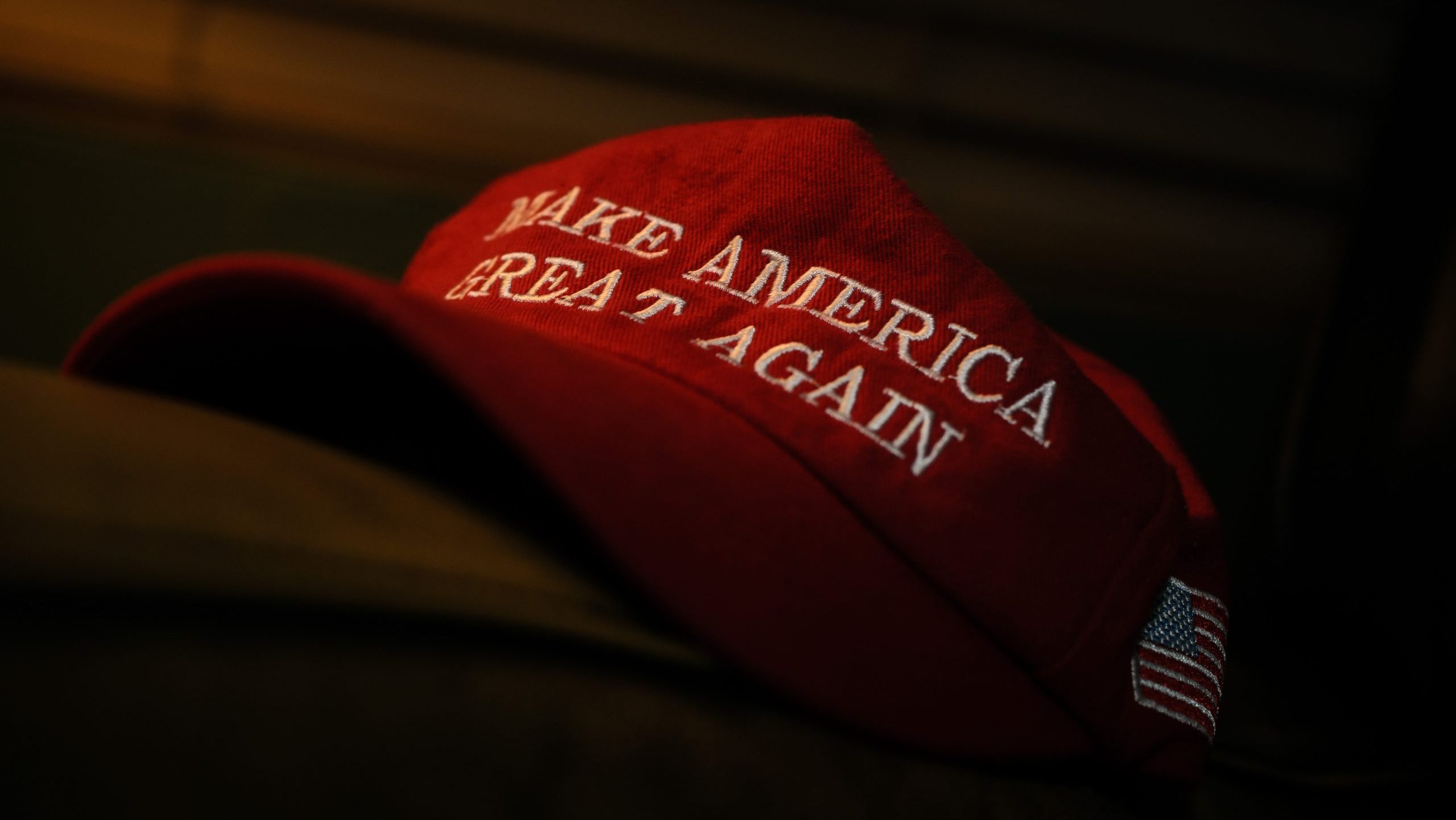New Jersey DSA members just got “uncommitted” on the ballot in the June 4 Democratic Party primary. Replicating Michigan’s and other states’ successful protest votes against Joe Biden and his support for genocide in Palestine, DSA organizers across New Jersey navigated the hurdles of the Democratic Party bureaucracy to meet voters and channel righteous indignation into electoral action.
The 126 delegates that New Jersey sends to the Democratic National Convention — more than Michigan or Minnesota send — are elected only at the bitter end of the primary calendar, giving us a long campaign period to denounce Biden’s refusal to push a ceasefire, and to organize frustrated and disillusioned voters into a national strategy that draws contrasts between DSA and the Democratic Party. Michigan Congresswoman and DSA member Rashida Tlaib has bravely leaned into this contrast by prominently backing the uncommitted campaign and by not committing to support Biden.
New Jersey has long seen demonstrations against Israeli occupation and apartheid. Paterson in the north of the state is home to one of the largest Palestinian diaspora communities in the world. In the past five months, across New Jersey, DSA members have helped lead rallies, marches, and municipal pro-ceasefire resolutions. The Ceasefire Now NJ coalition is led by DSA along with Jewish Voice for Peace, American Muslims for Palestine, and others. Congressman Andy Kim, who is running for US Senate, was disrupted by the coalition at a progressive Jersey City fundraiser and grilled on his lack of full support for a ceasefire.
Just a month ago, more than 100,000 voters in Michigan shocked the Democratic Party by voting “uncommitted” against Joe Biden, and helped spark a movement across the country to bring the demand for justice in Palestine and a permanent ceasefire into what was until then an uncontested primary. Needing at least 15% of the vote per district to secure a delegate, the uncommitted campaigns nationwide have thus far racked up more than a dozen delegates to the August DNC. Inspired by activists in state after state committing to run an uncommitted campaign, which appears to be moving the Biden administration’s stance on Palestine, DSA in New Jersey leapt into action to give ourselves the same chance here.
New Jersey Ballot Hurdles and Statewide Socialist Organizing
DSA has had to navigate anti-democratic, byzantine hurdles just to have a shot at being on the ballot. Between the upset in Michigan February 27 and the New Jersey Democratic Party’s delegate application deadline March 5, DSA had just one week to recruit between one and six candidates for delegate in each of the state’s 20 delegate districts, and then wade through party primary procedure to ensure each delegate’s proper application.
It’s no coincidence that the next day — March 6 — the Democratic Party state chair, LeRoy Jones, finally called for an immediate ceasefire. Between that first deadline and March 25, delegate candidates, most of whom are members of DSA from the North, Central, and South Jersey chapters, needed to collect a statewide total of at least 1,000 signatures from registered Democratic voters, plus 100 signatures per district, to have “uncommitted” appear as an option for voters in that district. DSAers and friends successfully made the ballot in 18 out of 20 districts with well over 3,000 signatures statewide.
If this strikes you as an unnecessarily restrictive path to intervening in the Democratic primary, you’re not alone. New Jersey’s party primaries are especially anti-democratic. The state’s primary election ballot design, known as “the line,” is notoriously unfavorable to challengers, and has long drawn the ire of progressives routinely shut out by party bosses who, in each county, have extensive control over how ballots look. While he is no friend of a permanent ceasefire or the uncommitted campaign, Representative Kim is whipping up progressive fervor by dovetailing his Senate bid with a new lawsuit against this ballot design. New Jersey’s attorney general now says “the line” is unconstitutional. Although avoiding an explicit denunciation of “the line,” the Party chair himself has just issued another nod to the party’s liberal-left by supporting ballot uniformity across counties.
Despite potential openings down the road, the hill to climb for uncommitted delegates is steep. Thankfully, the three small to midsize DSA chapters in New Jersey are coordinating to pull this off, and it’s not the first time DSA has taken on statewide work. Following the 2022 Labor Notes Conference, DSA members began a labor group chat that’s helped build a network of socialist activists ready to jump into action for pickets and rallies up and down the state. This network provided support for Starbucks workers; for faculty and adjuncts at Rutgers University striking for fair pay from Camden to New Brunswick to Newark; and for nurses striking the largest private employer in the state, RWJBarnabas Health. DSA members are raising money to send Rutgers bookstore workers and RWJBarnabas nurses to next month’s Labor Notes Conference in Chicago.
DSA is also digging its heels in for a general election campaign to get non-citizen voting enfranchisement on the ballot in multiple municipalities spanning at least Central NJ and North NJ DSA chapters. Before the 100,000 in Michigan voted in defiance of the Democratic Party’s smug assumption that it could take Arab-American, Detroit, and college student voters for granted, those New Jersey chapters had already committed to non-citizen voting rights campaigns, in chapter conventions. DSA is building on a budding statewide infrastructure for standing up against corporate Democrats.
Moving Democratic Voters and Non-voters to Democratic Socialism
Voting uncommitted does not necessarily bear on the decision to vote for Biden in the general election. For some, the function of a successful uncommitted campaign will be to save the president from himself, and allow him to win back all the voters he’s alienated thanks to his abject failure on confronting the genocide in Palestine. There is a group of solidly Democratic voters who plan on supporting Biden no matter what, largely to defeat Trump, but who are frustrated with his Palestine position. Another group, however, includes those who are resolutely against voting for Biden because of his support for genocide, and who may in fact register to vote only now, to vote uncommitted. Finally, there are voters who are genuinely unsure how to approach the general election, faced once again with the abysmal options of two capitalist parties’ candidates. Socialists should be talking to all of these people.
This is a great organizing opportunity to meet each of these groups of voters and share a democratic socialist vision of political change. When working people are agitated, it’s socialists’ job to organize them around that agitation.
Without an organized uncommitted vote, the first group of voters would go to the polls in the primary, hold their nose, and cast their vote for Biden, just as they plan to do in the general. The second group would abstain from voting in the primary altogether, as they likely will in the general. And the third group would continue to look for answers.
With an organized uncommitted vote, socialists can meet these disparate concerns through a campaign with a clear “ask” (“will you vote uncommitted?”), organize agitation into action, and build relationships for longer-term work that challenges corporate Democrats.
Some DSA members may be concerned that driving turnout, and previously unregistered voters, to the primary election is playing into the Democratic Party’s hand. But the Democrats aren’t in any significant way a membership-based party. We’re not contributing to the its growth as much as we are engaging people in the debate around how the left should relate to the Democratic Party. While we want to engage all of these different groups of voters in this debate, we do not need to be agnostic about the Democratic Party. Democratic socialists should be talking to uncommitted voters about the need to move ourselves away from a corporate-dominated party whose class interests are antagonistic to those of working people in the US and the world over — the need to form our own workers party. An uncommitted campaign with canvasses, group chats, meetings to phonebank, and in-person tabling events can be such a vehicle.
The Electoral Commitment to Uncommitted
If we want to talk to and organize people who are heartbroken and furious, why ask them to vote? The likelihood of any state’s uncommitted vote actually beating Biden is low, and we cannot overtake his numbers for the primary nationwide. There are two good reasons, nonetheless.
Hundreds of thousands of Democratic primary voters have already chosen “uncommitted” to demand a ceasefire, and despite some public deflection, Biden and the Democrats are listening. From promising a pier in the Mediterranean to bring aid into Gaza, to threatening to condition U.S. military aid if Israel invades Rafah, to escalating denunciations of the Netanyahu government, the Democratic Party’s position has been pushed significantly from earlier unequivocal and even more shameless allegiance to Israel. Critically, the US also just abstained in a UN Security Council vote, allowing a Gaza ceasefire resolution to finally pass. While these steps all fall far short of delivering the permanent ceasefire that is so desperately needed — let alone longer-term goals like ending the Israeli occupation — the months of mass protests and now tangible, countable votes are indeed forcing Biden to shift his stance.
These primaries are also sending delegates to the August convention. Twenty delegates are already “uncommitted,” compared to the more than 2,000 already secured by Biden. Even a small contingent of strong pro-ceasefire delegates will be able to politicize and disrupt the predetermined and self-aggrandizing performance that the convention is sure to be.
Imagine if among this uncommitted delegate contingent there are also democratic socialists who have hold of the national spotlight and can speak to an audience of millions of dissatisfied and disillusioned working people — organizers who can connect the dots between genocide abroad, Democrats’ and Republicans’ loyalty to the arms industry, and working people’s struggle for public goods and political power.
Uncommitted voters constitute a big tent, and under it there is no common agreement on how we should relate to the Democrats. This is all the more reason to step up and speak to the hundreds of thousands of voters who are organizing and taking action. While DSA itself is divided on how to relate to the Democratic Party, it must be widely agreed that driving home the clear contrasts between us and them is crucial.
DSA members and friends have collected thousands of signatures across the state, dealt with the Democratic Party’s inane ballot rules, and set New Jersey up to be the final frontier in this historic protest vote against Biden’s support for genocide. We are canvassing outside mosques before and after prayer times. We are meeting and signing up neighbors in parks and at transit hubs. We are getting friends, family, and coworkers involved. With so many delegates at play, and with more than two months to table on college campuses, run phonebanks, and hold public demonstrations, what’s traditionally an afterthought primary may be a golden opportunity: New Jersey can take the protest vote that Michigan started and close it out strong.




